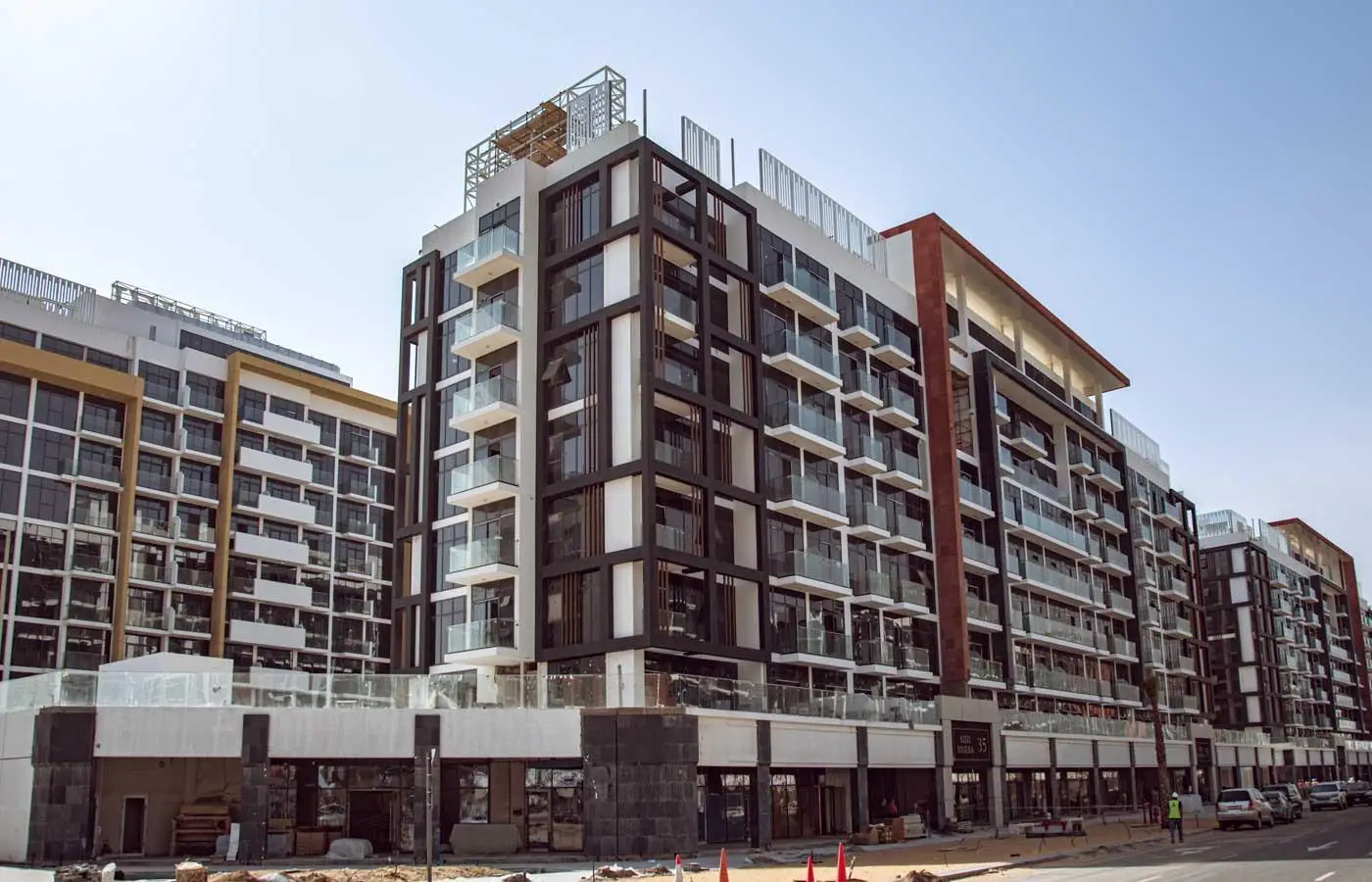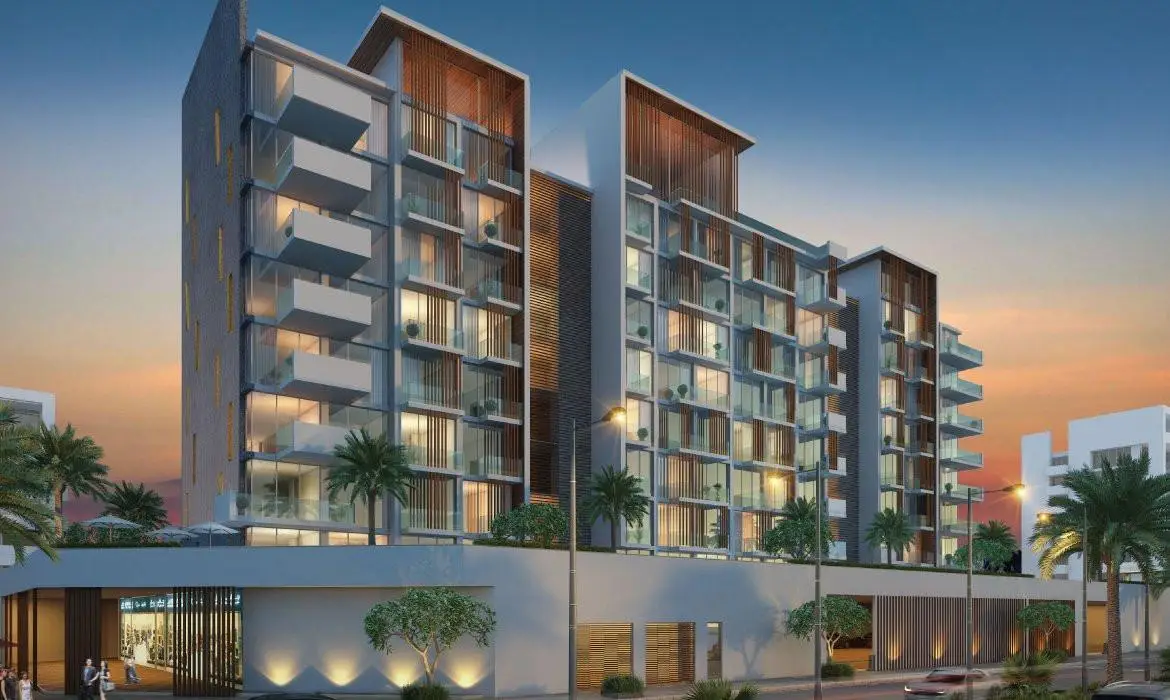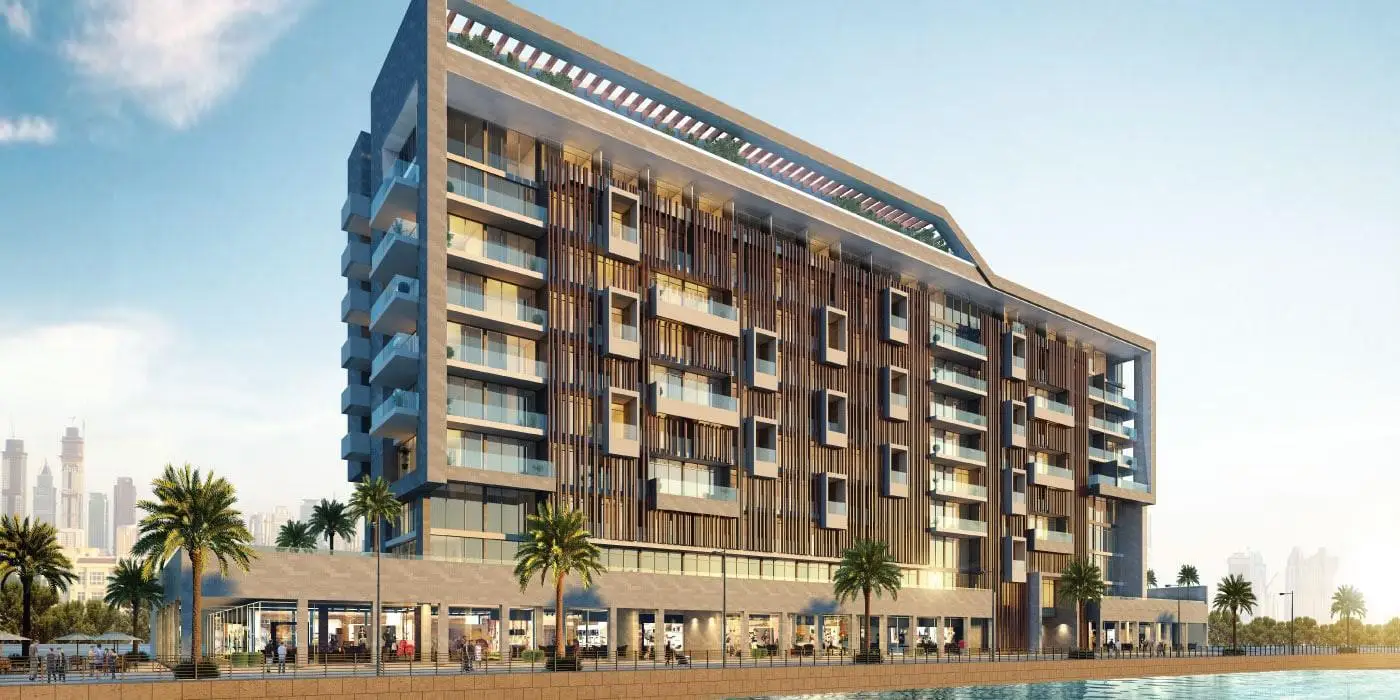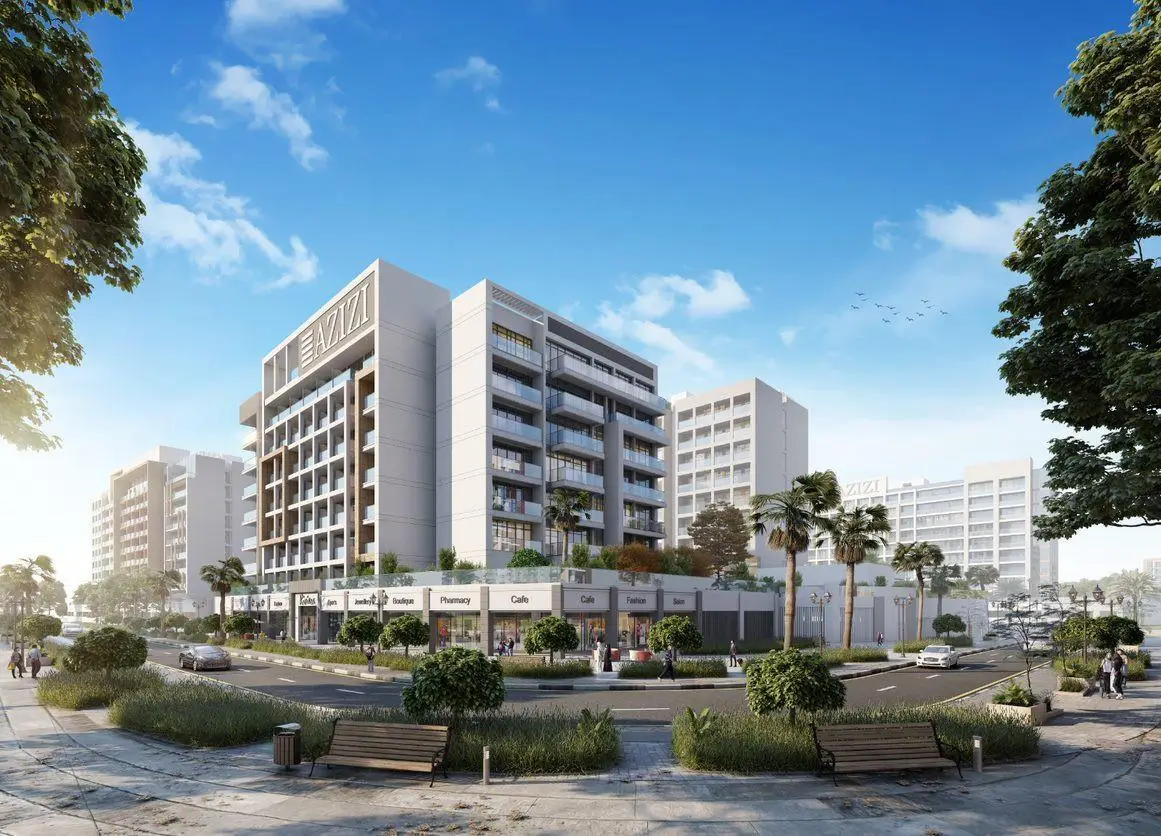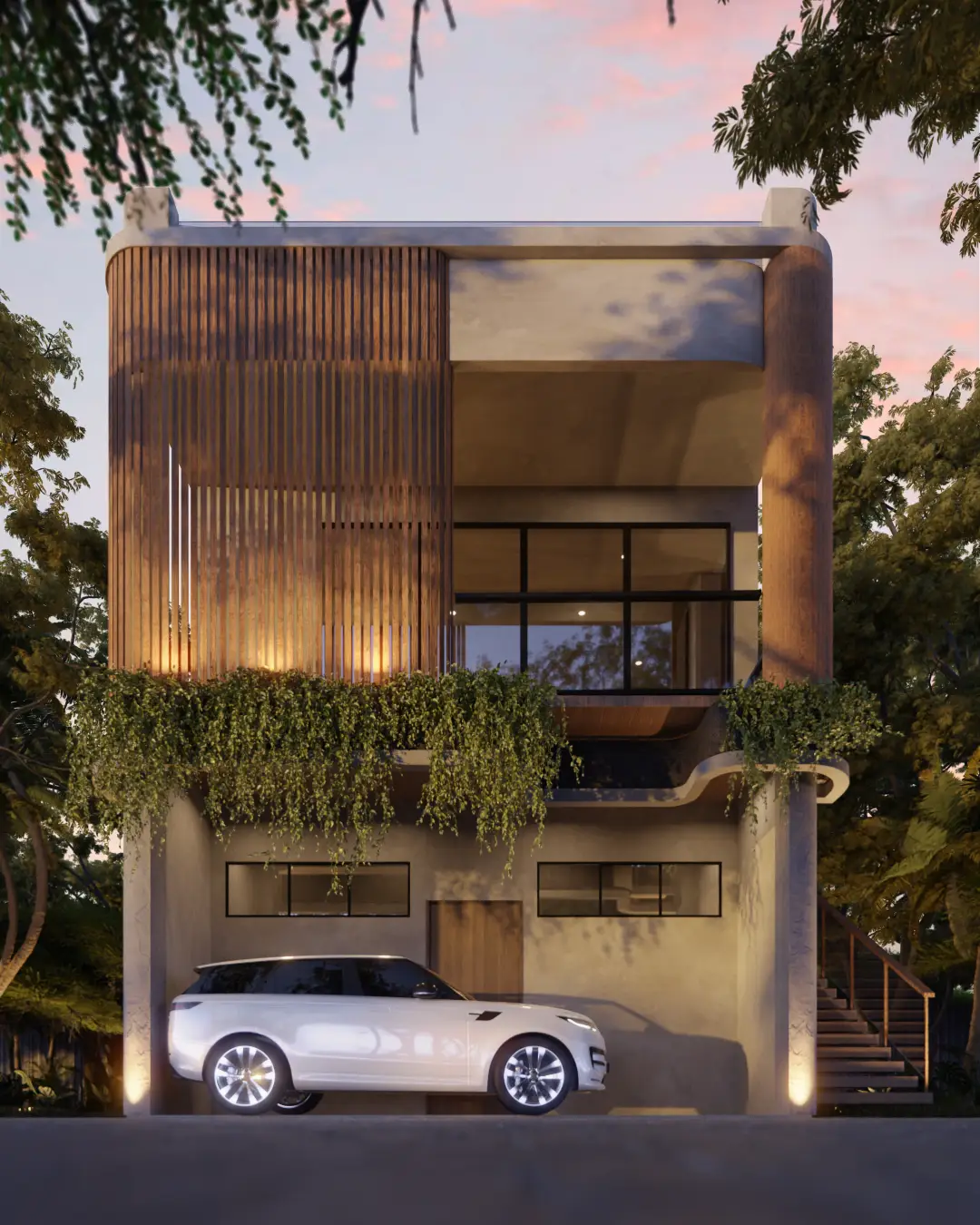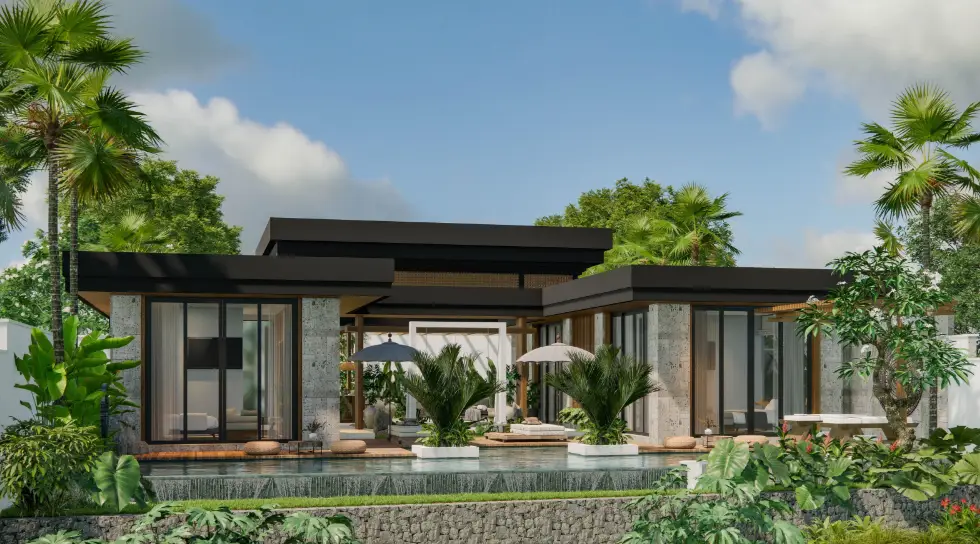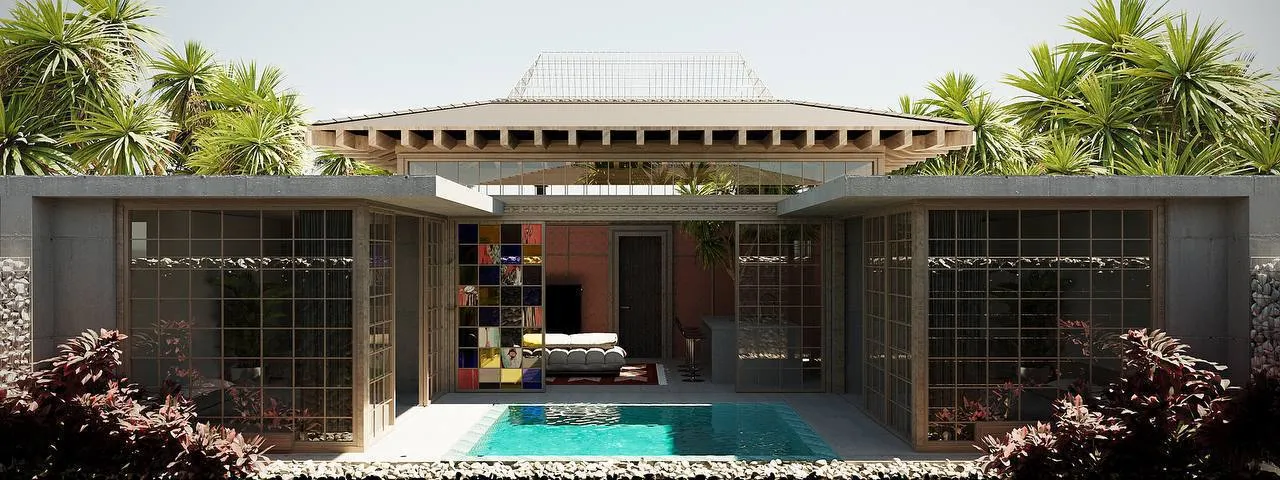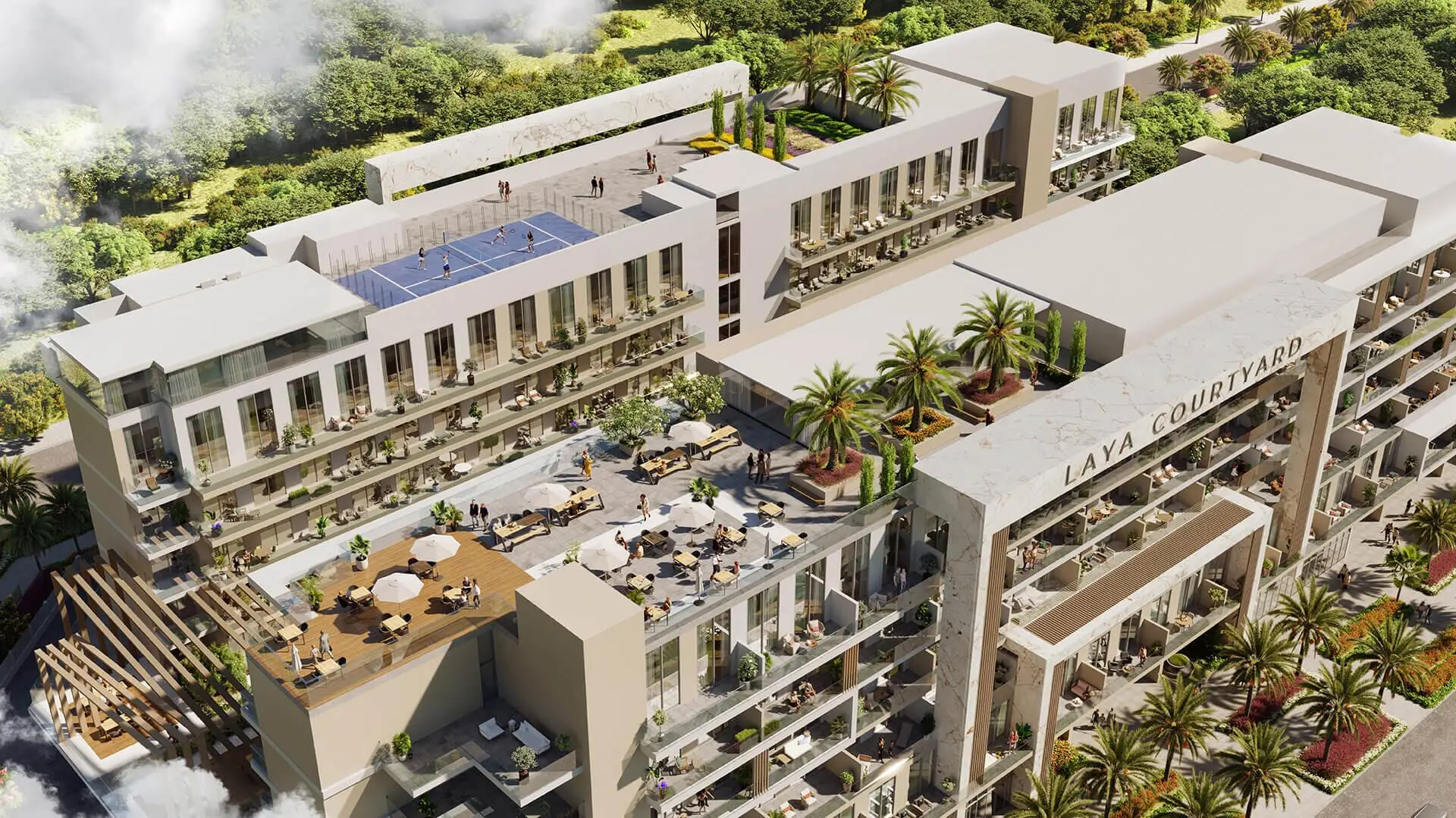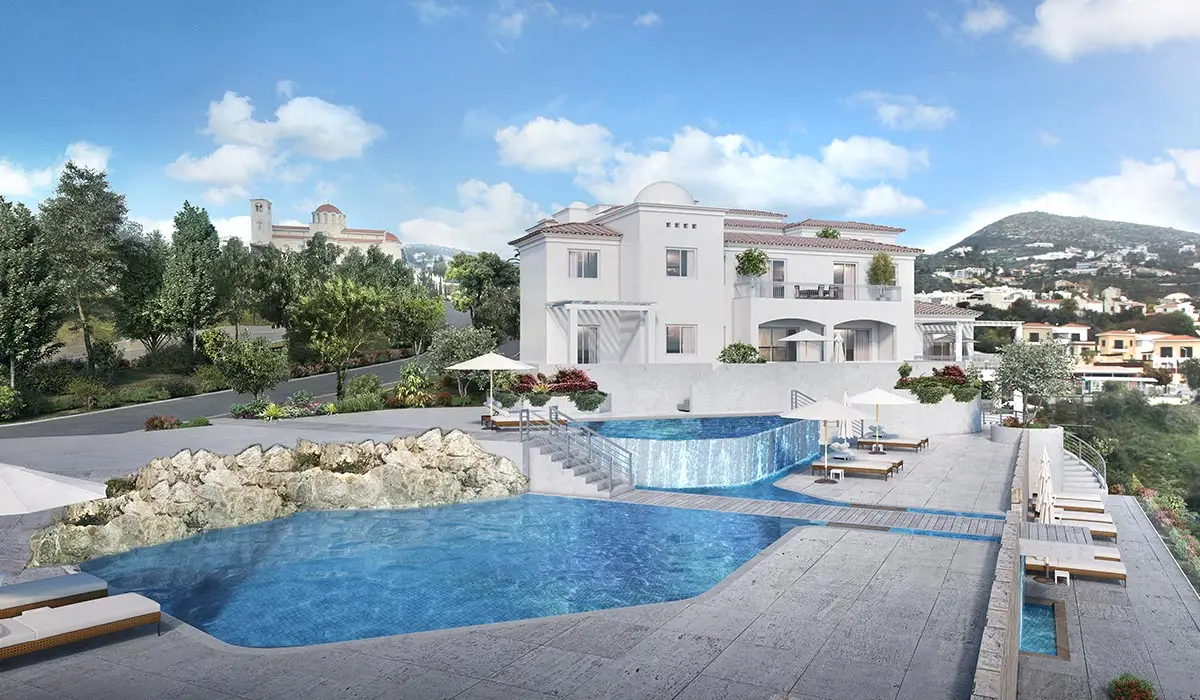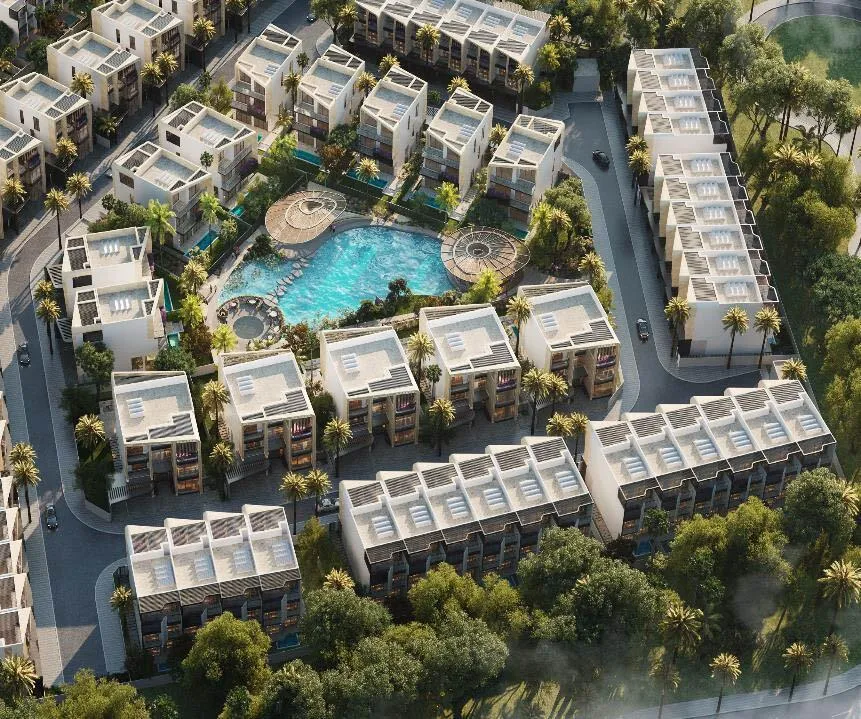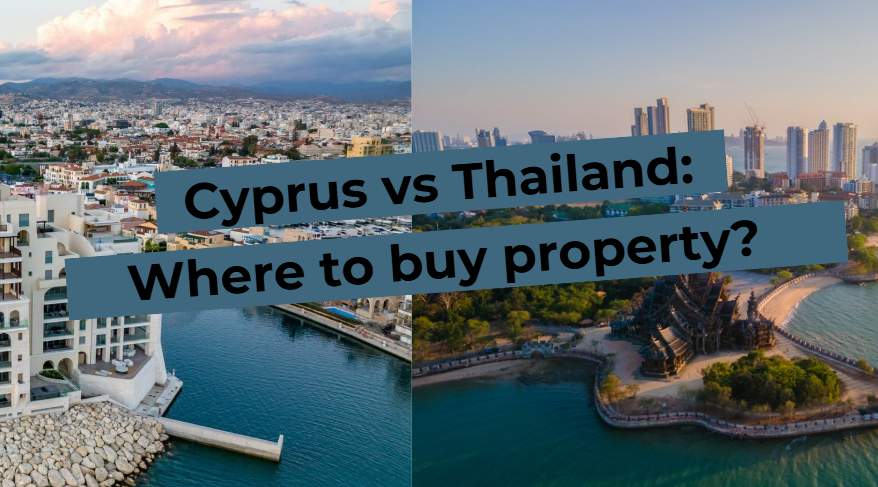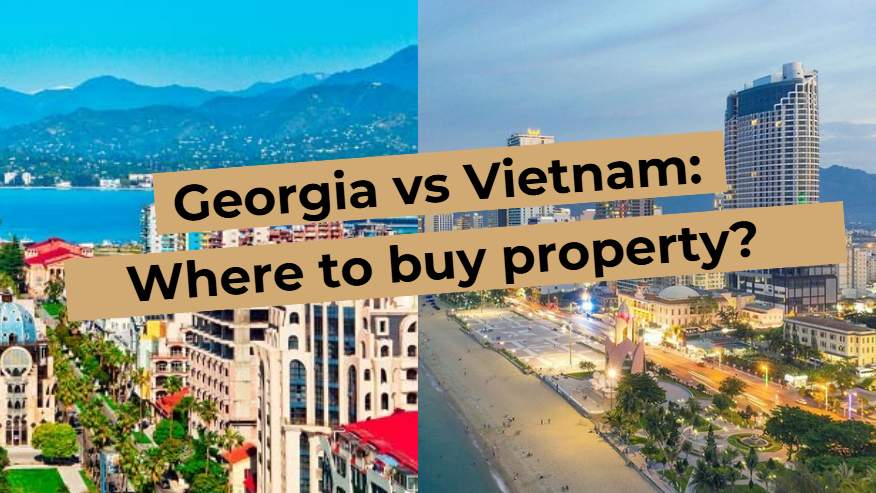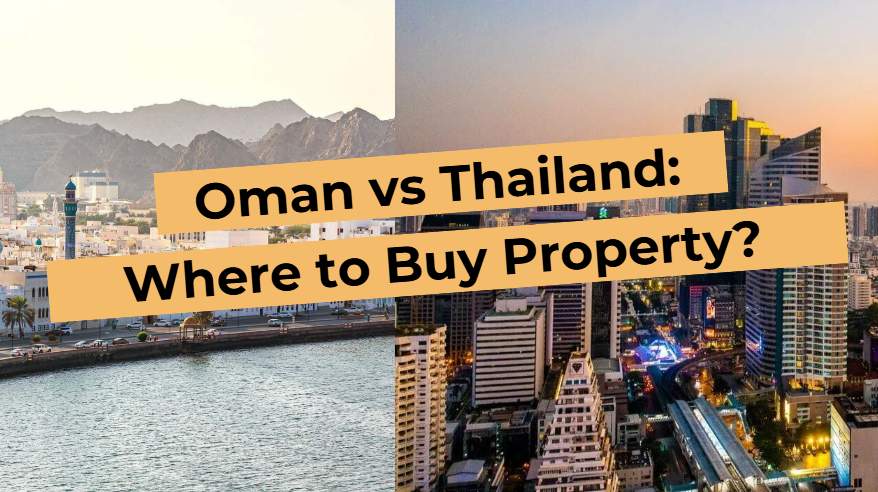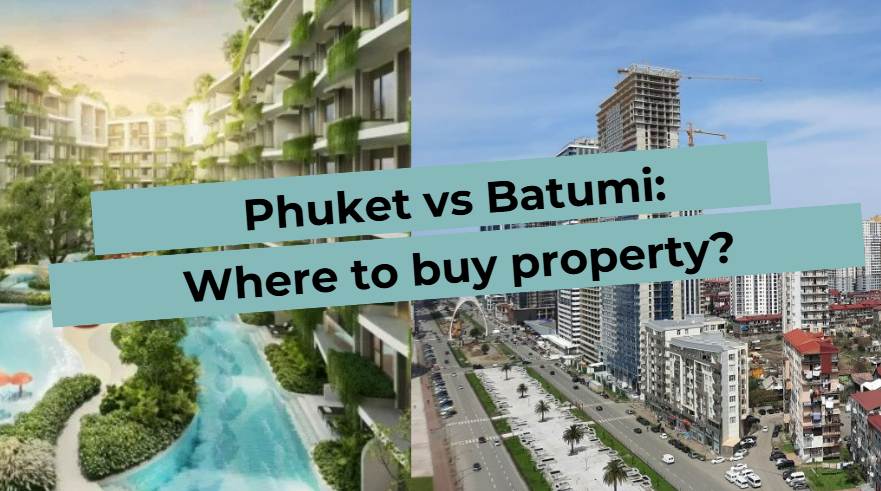
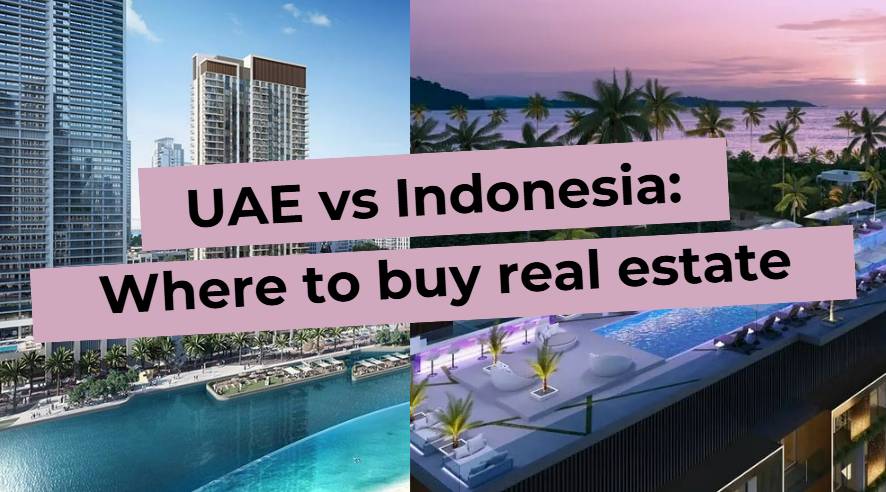
When it comes to buying real estate abroad, the UAE and Indonesia are often the focus of investors. These two countries offer unique investment opportunities, but how do you choose where to buy real estate? In this article, we will look at the key factors to consider when making a decision and compare the investment climate of both countries.
Real estate market analysis in UAE and Indonesia
When you are thinking about buying real estate abroad, it is important to understand how the market is developing in each country. Let's take a look at what the UAE and Indonesia have to offer in terms of real estate.
UAE: Pulse of luxury and innovation
In the UAE, the real estate market is known for its dynamism and luxury. Dubai and Abu Dhabi are the two main cities that attract the attention of investors from all over the world. Property prices here can range from €200,000 for a small apartment to several million euros for luxury villas. There has been a steady increase in prices in recent years due to high demand and limited supply.
Main market segments:
- Residential segment: Includes both apartments and villas. Popular neighborhoods such as Dubai Marina and Palm Jumeirahoffer unique views and a high quality of life.
- Commercial segment: The UAE is the business hub of the region and commercial real estate is in high demand here. Office space in the center of Dubai can cost from €500,000 and up.
- Resort segment: Tourism plays a key role in the UAE economy. Investments in resort real estate such as hotels and apartments can generate significant returns.
Indonesia: Exoticism and Growth Potential
Indonesia, with its stunning nature and cultural heritage, offers unique investment opportunities. Bali, Jakarta and Lombok are the three main regions where real estate market activity is concentrated. Prices here are more affordable, ranging from €50,000 for a small apartment to €500,000 for an oceanfront villa.
Main market segments:
- Residential segment: Includes both urban apartments in Jakarta, as well as villas in Bali. The latter are particularly popular with foreign investors.
- Commercial segment: Jakarta is the heart of business in Indonesia. Here you can find office space priced from €100,000.
- Resort segment: Bali is the tourist gem of Indonesia. Investing in resort real estate here can be particularly lucrative given the constant flow of tourists.
Impact of tourism and foreign investment
Both countries actively attract foreign investors by offering various programs and incentives. In the UAE, tourism and foreign investment play a key role in the economy, which contributes to the growth of real estate prices. In Indonesia, especially in Bali, tourism is also a major market driver. Foreign investments here contribute to the development of infrastructure and increase real estate prices.
Thus, both the UAE and Indonesia offer unique opportunities for investors. It is important to consider both current trends and long-term growth prospects to make the right choice.
Comparison of key investment drivers in UAE and Indonesia
When it comes to choosing between the UAE and Indonesia for real estate investment, it is important to consider a few key factors. Let's take a look at exactly what an investor should consider in order to make an informed choice.
| Factor | UAE | Indonesia |
|---|---|---|
| Minimum investment amount | From €200,000 | From €50,000 |
| Rental yield | 6-8% per year | 5-7% per year |
| Prospects for value growth | Steady growth, especially in Dubai | Growth from infrastructure and tourism |
| State support programs | Residence permit through investments, developed programs | Limited programs, improving conditions |
| Price per 1 sq.m. on average | From €3,500 (in Dubai) | From €1,500 (in Bali) |
| Formalization | Fast, possibly remotely | Requires additional permits for foreigners |
| Tax on the purchase of real estate | 4% (in Dubai). | From 10% (depending on region) |
| Real estate ownership tax (per year) | Absent | 0.5-1% from cost |
| Payback | 12-16 years old | 10-14 years old |
| Rent per day, average | From €150 (in Dubai) | From €80 (in Bali) |
| Profit per year, on average | 5-7% | 4-6% |
| Annual growth of tourists | ~10-12% | ~15-18% |
| Real estate price growth per year | 5-8% | 7-10% |
Nuances when buying a home in the UAE and Indonesia
Buying real estate abroad is always a challenge, especially when it comes to countries as different as the UAE and Indonesia. Let's understand the main nuances to consider when buying a home in these countries.
Registration process: deadlines and documents
UAE: The process of buying real estate in the UAE is quite transparent and takes from 4 to 8 weeks. The main documents include passport, purchase and sale agreement and proof of solvency. It is important to remember that the UAE has a system of real estate registration, which provides additional protection of property rights.
Indonesia: In Indonesia, the process can take a little longer - from 6 to 10 weeks. The main documents include passport, sales contract and purchase permit for foreigners. It is important to be attentive to details here, as the registration system is not as developed as in the UAE.
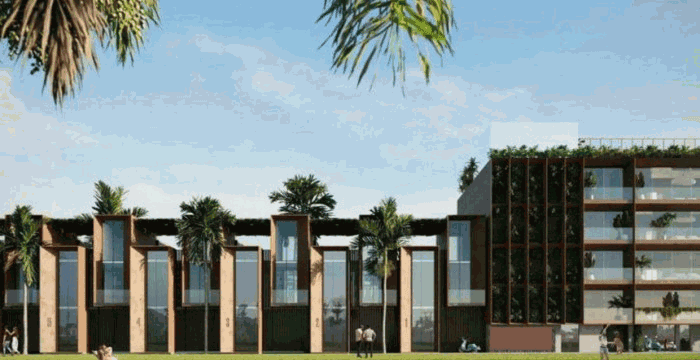
Restrictions for foreigners
UAE: In UAE foreigners can freely purchase real estate in so-called "free zones. This avoids many bureaucratic complexities and restrictions, which makes the process more attractive to foreign investors.
Indonesia: There are certain restrictions for foreigners in Indonesia. For example, they can only purchase real estate under certain conditions, such as long-term leases or through local companies. This requires additional legal advice and can complicate the process.
Possibility of obtaining a residence permit
UAE: Buying real estate in the UAE can provide an opportunity to obtain a residence permit. This is usually possible with an investment of €500,000 and higher. This makes the country particularly attractive for those planning an extended stay.
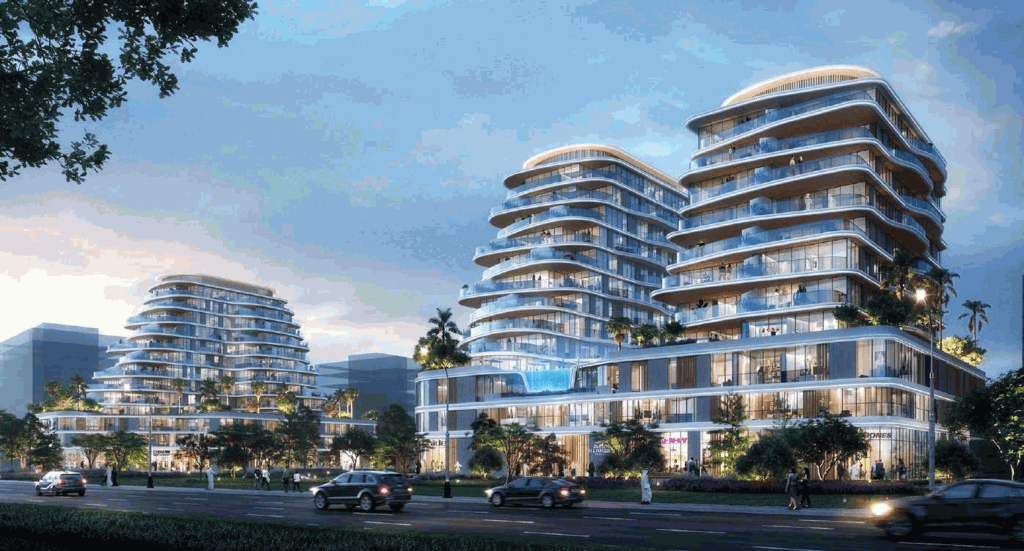
Indonesia: In Indonesia, the purchase of real estate does not automatically entitle you to a residence permit. However, there are other programs such as the "investor visa" that can be used in conjunction with the purchase of real estate.
As a result, buying real estate in the UAE and Indonesia has its own peculiarities and nuances. The UAE offers a more simplified process and the possibility of obtaining a residence permit, while Indonesia requires more thorough preparation and legal support.
Similarities and characteristics of the real estate market in the UAE and Indonesia
The real estate markets of the UAE and Indonesia have both common features and unique characteristics that make each of these countries attractive to investors. Let's take a look at what exactly unites and distinguishes these two destinations.
Similarities: popularity with investors and rising prices
UAE and Indonesia: Both markets are attracting the attention of foreign investors due to their growth prospects and stability. Real estate prices in both countries are showing steady growthThis is due to both domestic demand and interest from overseas buyers. In the UAE, this is due to infrastructure and tourism development, while in Indonesia it is due to growing popularity among tourists and expats.
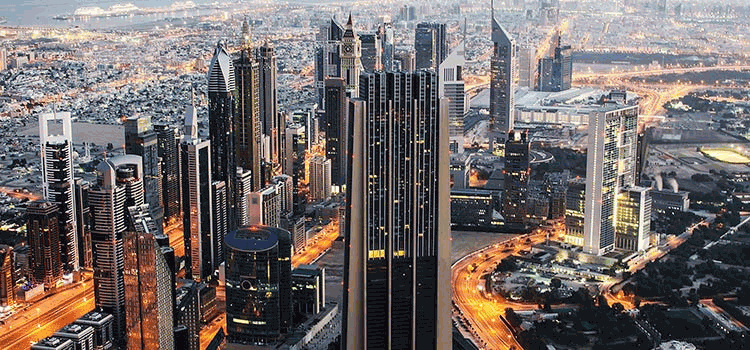
Differences: infrastructure, taxes, bureaucracy
Infrastructure:
- UAE: Developed infrastructure is one of the UAE's strengths. Modern roads, airports and public transportation make life here comfortable and convenient. Roads in the UAE are renowned for their quality and thoughtfulness, which is especially important for those who plan to move around the country frequently.
- Indonesia: Indonesia's infrastructure is less developed, especially outside the major cities. However, the government is actively investing in improving the transportation system, which promises positive changes in the coming years.
Taxes:
- UAE: There is no property tax in the UAE, making the country attractive to investors looking to minimize tax costs.
- Indonesia: There is a property tax in Indonesia, which can vary depending on the region and the type of property. This is worth considering when planning your budget.
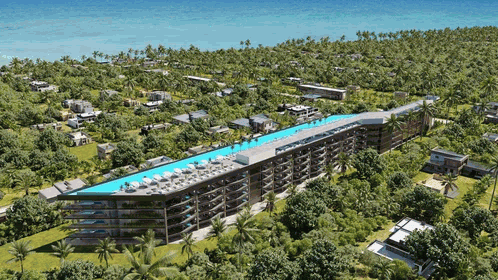
Bureaucracy:
- UAE: Procedures in the UAE are more simplified and transparent, making it quicker and easier to complete all stages of transactions.
- Indonesia: In Indonesia, bureaucratic procedures can be more complex and time-consuming, requiring additional attention and preparation.
Thus, the UAE and Indonesia offer different conditions for investors. The UAE attracts with its developed infrastructure and tax incentives, while Indonesia offers more affordable prices and growth prospects, although it requires more preparation and patience with bureaucracy.
Prospects for growth and development of resort real estate
Resort real estate is not only an opportunity to enjoy vacations in picturesque places, but also a profitable investment destination. The UAE and Indonesia offer unique conditions for those who want to invest in this segment. Let's take a look at how the resort markets in these countries are developing.
Popularity of tourism and impact on prices
UAE: The UAE, especially Dubai and Abu Dhabi, are world centers of tourism. Tourist flow to the UAE is steadily increasingThis has a positive impact on the demand for resort real estate. Investors can expect high rental yields, especially during the season. Prices for resort properties vary from €300,000 for apartments to several million euros for villas.
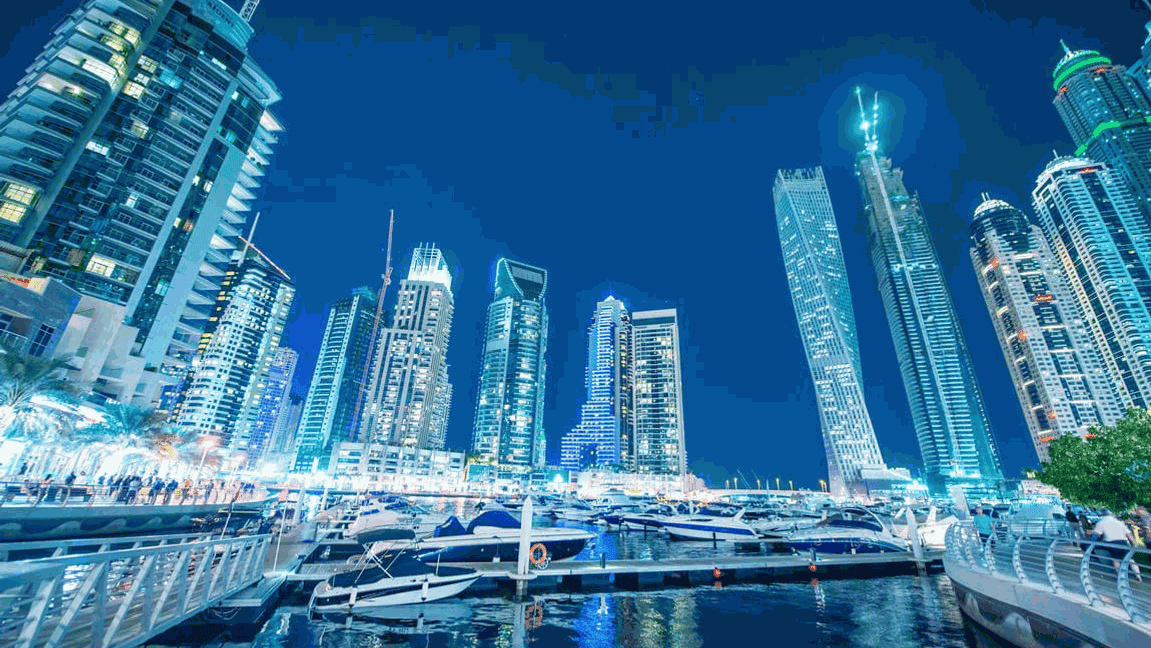
Indonesia: Indonesia, with its stunning beaches and exotic nature, is also very popular with tourists. Bali is a real gem for resort real estate investors. Prices here start from €100,000 for small apartments and can reach €1,000,000 for luxury villas. Tourism in Bali continues to grow, which contributes to the increase in real estate values.
Main resort areas
UAE: In the UAE, the key resort areas are Dubai and Abu Dhabi. Here you can find both modern apartments with sea views and exclusive villas on artificial islands such as Palm Jumeirah.
Indonesia: In Indonesia, Bali remains the most popular resort destination. Here, investors can choose between secluded villas in the Ubud or beach houses in Seminyak and Changgu. Lombok and Jakarta are also beginning to attract attention due to infrastructure development and increased tourist traffic.
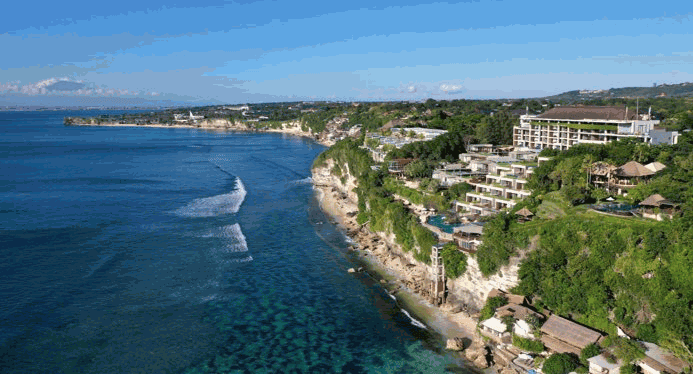
Impact of seasonality on the market
UAE: In the UAE, seasonality does not affect the market as much, as the country offers year-round tourism due to its climate and diverse activities. This ensures a stable demand for renting and buying real estate.
Indonesia: In Indonesia, seasonality plays a more significant role. The high season in Bali is during the summer months and New Year holidays. During this time, rental prices can increase significantly, making investment in resort real estate particularly profitable.
Yield from short-term and long-term leases
Investing in rental properties can be a great source of income, especially in such popular tourist and business centers as the UAE and Indonesia. Let's understand what is more profitable to rent out and what kind of income you can expect in each of these countries.
What is more profitable to rent out?
UAE: In the UAE, short term rentals, especially in Dubai, can be very lucrative due to the constant flow of tourists and business travelers. The average short-term rental yield is about 8-10% per year. Long-term leases, on the other hand, provide stable income and less administrative hassle, with yields of approx. 6-8% per year.
Indonesia: In Indonesia, especially in Bali, short-term rentals are also popular due to the tourist flow. Short-term rental yields can be as high as 10-12% per yearespecially during the high season. Long-term rentals in Bali and Jakarta generate income in the neighborhood of 5-7% per yearThis is also an attractive indicator.
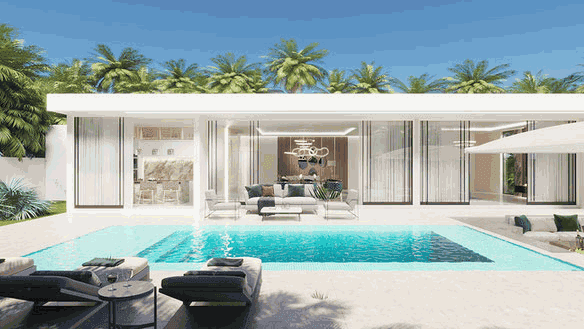
Average rental rates
UAE: In Dubai, the average cost of renting an apartment is approx. €1,500-€3,000 per monthThe prices in Abu Dhabi are similar, but may be slightly lower in less popular areas. Prices are similar in Abu Dhabi, but may be slightly lower in less popular areas.
Indonesia: In Bali, villa rentals can range from €1,000 to €2,500 per monthDepending on the location and amenities. In Jakarta, renting an apartment costs approximately €500-€1,500 per month.
Rent taxes
UAE: There is no tax on rental income in the UAE, making the country particularly attractive to investors looking to minimize tax costs.
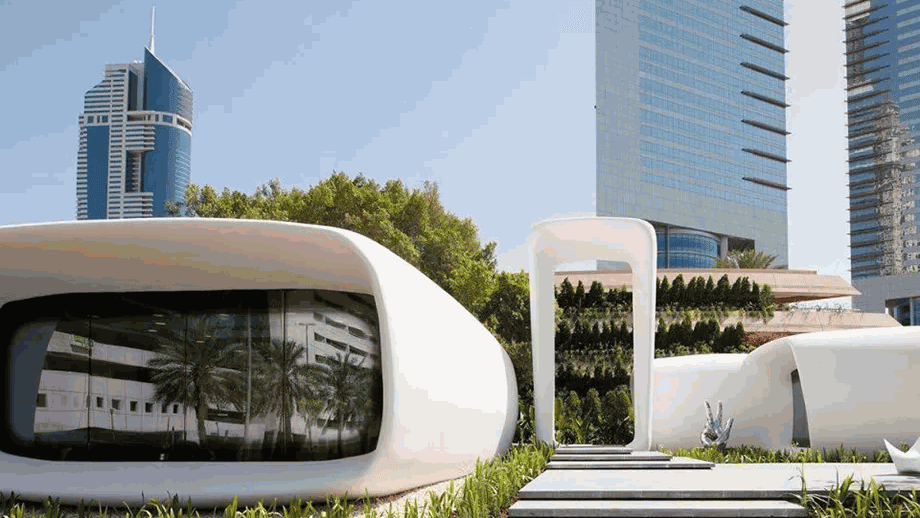
Indonesia: In Indonesia, there is a tax on rental income, which is approx. 10% from income. This is worth considering when calculating your total return on investment.
Thus, the choice between short-term and long-term rentals depends on your goals and preferences. The UAE offers stability and tax benefits, while Indonesia attracts high yields during the tourist season.
Economy and life in the UAE and Indonesia
When it comes to choosing a country to invest or live in, it is important to consider not only the real estate market, but also the general standard of living, economy and business opportunities. The UAE and Indonesia offer different but equally attractive living and working environments.
Living standards and GDP
UAE: UAE is one of the most developed countries in the region with a high standard of living. GDP per capita exceeds €35,000The country is one of the richest in the world. Here you will find all the amenities of modern life: from luxury shopping malls to first-class medical facilities. The standard of living in the UAE attracts both expats and tourists, which contributes to a steady demand for real estate.
IndonesiaIndonesia, on the other hand, is an emerging economy with a GDP per capita of about €4,000. Despite this, the country is showing steady economic growth, which makes it attractive for long-term investment. The standard of living here is lower than in the UAE, but this is offset by a lower cost of living and a rich cultural heritage.
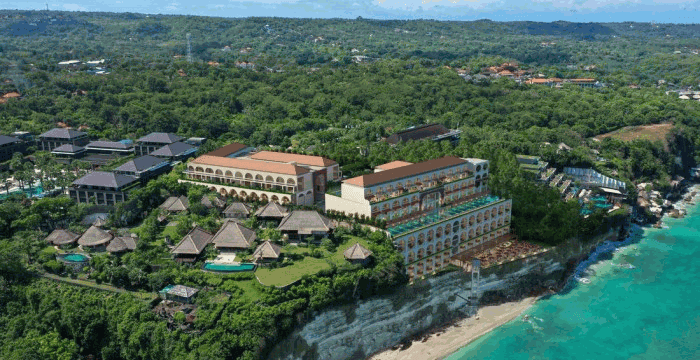
Cost of living
UAE: The cost of living in the UAE is relatively high. For example, renting an apartment in Dubai can cost upwards of €1,500-€3,000 per monthand lunch at a restaurant is about €20-€50. However, the high salaries and lack of income tax make life here comfortable and attractive to expats.
Indonesia: The cost of living is much lower in Indonesia. Renting an apartment in Jakarta costs about €500-€1,500 per monthand a meal at a local restaurant will cost you €5-€10. This makes Indonesia attractive to those seeking an affordable and comfortable lifestyle.
Business opportunities
UAE: The UAE is one of the largest business hubs in the world. All conditions for doing business have been created here: from free economic zones to simple company registration procedures. Transportation and logistics in the UAE developed at the highest level, making the country ideal for international trade.

Indonesia: Indonesia also offers many business opportunities, especially in the areas of tourism, agriculture and manufacturing. The government is actively working to improve the business climate, which attracts foreign investors. However, it is worth bearing in mind that bureaucratic procedures here can be more complicated than in the UAE.
Education and medicine in the UAE and Indonesia
When choosing a country to live or invest in, it is important to consider the quality of education and medical care. The UAE and Indonesia offer different opportunities in these areas, and understanding their characteristics will help you make an informed choice.
International schools and universities
UAE: The UAE is renowned for its high level of education and the presence of many international schools and universities. Tuition fees at international schools can be as high as €10,000-€25,000 per yearDepending on the level and reputation of the institution. Universities such as New York University in Abu Dhabi or the American University in Dubai offer world-class programs, making the UAE an attractive destination for families with children.
Indonesia: There are also international schools in Indonesia, especially in Jakarta and Bali, where tuition costs are about €5,000-€15,000 per year. Universities such as the University of Indonesia and Gadjah Mada University offer quality education, but their international recognition is somewhat lower than in the UAE.
Quality of health care
UAE: The UAE offers first-class medical care that meets world-class standards. Cost of medical services can be high, but the quality and availability of private clinics and hospitals make the country attractive to expats. Many medical facilities partner with leading international hospitals to ensure a high level of care.

Indonesia: In Indonesia, the quality of health care varies. There are good private clinics in major cities such as Jakarta and Denpasar, but in more remote areas access to quality medicine can be limited. Cost of medical services here is lower than in the UAE, but this may affect the level of service.
Cost of medical services
Indonesia: In Indonesia, health services are more affordable. A doctor's consultation costs €20-€50The cost of hospitalization and treatment will be significantly lower than in the UAE. However, the quality of services can vary, so it is important to choose trusted clinics.

UAE: Medical services in the UAE can be expensive, especially in private clinics. For example, a doctor's consultation can cost around €100-€200and more complex procedures are much more expensive. However, having health insurance can significantly reduce these costs.
Roads and transportation in UAE and Indonesia
Infrastructure and transportation systems play a key role in assessing a country's attractiveness for living and investing. The UAE and Indonesia offer different levels of development in this area, and understanding these differences will help you make an informed choice.
Infrastructure development
UAE: UAE is known for its modern and highly developed infrastructure. Roads in the UAE - is a model of quality and thoughtfulness. The country offers an extensive highway network connecting key cities and neighborhoods. Dubai and Abu Dhabi pride themselves on their modern transportation systems, including subways and streetcars, making travel fast and convenient.
Indonesia: In Indonesia, infrastructure is less developed, especially outside the major cities. However, the government is actively investing in improving the road network and public transportation. Jakarta has recently introduced a metro system, which has significantly improved the transportation situation in the capital. Transportation in Indonesia still requires improvement, especially in remote areas.
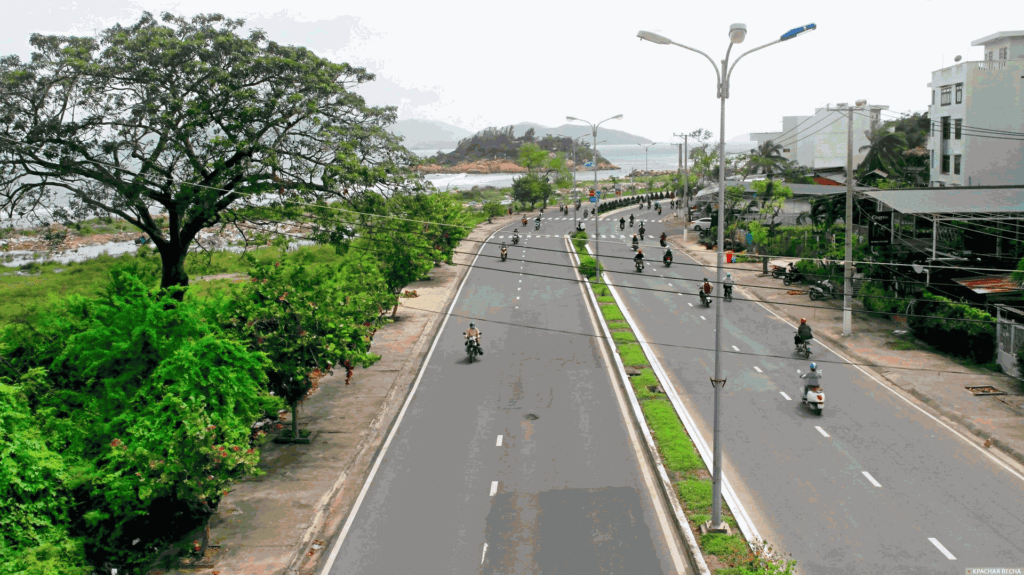
Airport accessibility
UAE: The UAE boasts some of the best airports in the world. Dubai International Airport and Abu Dhabi Airport offer a wide range of international flights, making the country an important transportation hub. Airport accessibility and frequency of flights ensure ease of travel and make the country attractive for business and tourism.
Indonesia: In Indonesia, international airports are located in Jakarta and Bali. Although not as large as in the UAE, they provide sufficient connectivity to major world destinations. However, domestic flights may be less convenient due to limited frequency and quality of service.
Impact on real estate value
UAEDeveloped transportation infrastructure and accessibility of airports have a positive impact on the value of real estate in the UAE. Real estate prices in areas with good transport accessibility, such as Dubai Marina or the center of Abu Dhabi, are significantly higher, making them attractive to investors.

Indonesia: In Indonesia, the impact of transportation infrastructure on property values is also notable. In areas with good transportation accessibility such as Jakarta and popular resort areas in Bali, real estate prices higher than in less developed regions.
Legal and tax specifics
When investing in real estate abroad, it is important to consider the legal and tax aspects that can significantly affect your returns and the ownership process. The UAE and Indonesia offer different conditions and understanding these specifics will help you avoid pitfalls.
Taxes on buying and owning real estate
UAE: There is no real estate purchase tax in the UAE, which makes the country particularly attractive to investors. However, there is a registration fee, which is approx. 4% of the value of the property. Owning real estate is also tax-free, allowing investors to keep more of their rental or sales income.
Indonesia: In Indonesia, the tax on the purchase of real estate is approx. 5% of the costThis is something to consider when planning your budget. Owning real estate is subject to an annual tax, which can vary depending on the region and type of property. This can affect the overall return on investment.
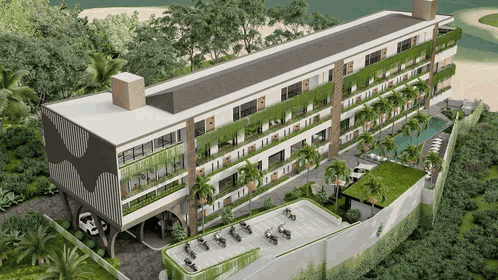
Residence permit and citizenship through investment
UAE: UAE offers residency programs through real estate investments. Minimum investment amount to obtain a residence permit is about €500,000. This makes the country attractive for those who plan to stay and do business in the UAE for long periods of time.
Indonesia: In Indonesia, the purchase of real estate does not automatically entitle you to a residence permit. However, there are programs such as the "investor visa" that can be used in conjunction with the purchase of real estate. This requires additional legal advice and preparation.
Taxation of rent
UAE: There is no tax on rental income in the UAE, allowing investors to retain a large portion of the profits. This makes the country particularly attractive for those who plan to earn a stable income from rental real estate.
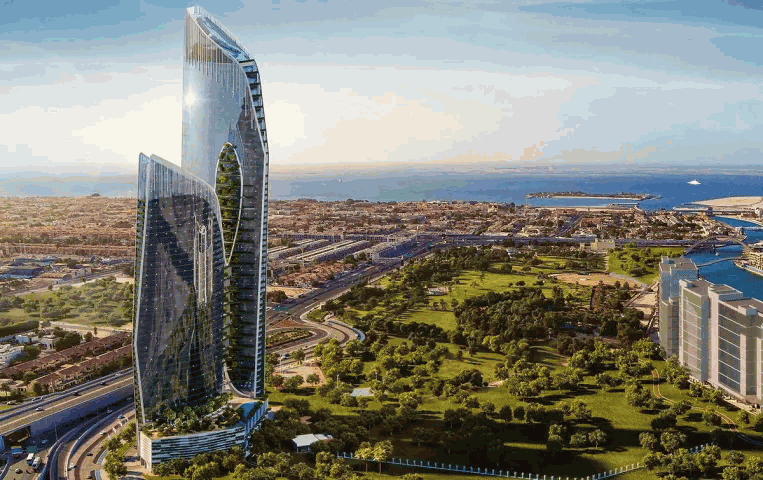
Indonesia: In Indonesia, rental income is subject to a tax that is approx. 10% from income. This is worth considering when calculating the total return on investment, but even with tax included, returns remain at an attractive level.
What should an investor choose? UAE vs Indonesia
Choosing between the UAE and Indonesia for real estate investment is not just a matter of preference, but a strategic decision that depends on many factors. Let's summarize and compare the pros and cons of each country to help you make an informed choice.
Optimal investment strategies
Indonesia: Indonesia, with its growing economy and affordable real estate prices, offers excellent opportunities for investors looking for high returns. Rental yields in Indonesia can reach 10-12% per year, especially in tourist areas in Bali.
- Positive: Affordable real estate prices, high rental yields, growing tourist traffic.
- Minuses: Taxes on rental income, less developed infrastructure, restrictions for foreign buyers.
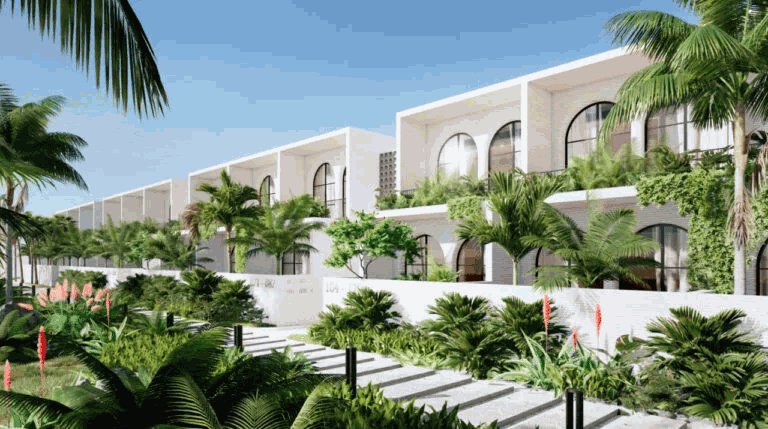
UAE: The UAE offers stability and a high standard of living, making it attractive for long-term investment. Rental yields in the UAE can be as high as 8-10% per year, especially in the popular neighborhoods in Dubai and Abu Dhabi. The country also offers programs for obtaining residence permits through investments, which can be an important factor for those who plan a long stay.
- PositiveNo tax on rental income, developed infrastructure, possibility of obtaining residence permit.
- Minuses: High cost of living and real estate, need for significant initial investment.
Final comparison of pros and cons
UAE: If you are looking for stability, a high standard of living and the possibility of obtaining a residence permit, the UAE may be the ideal choice. However, be prepared for high living and real estate costs.
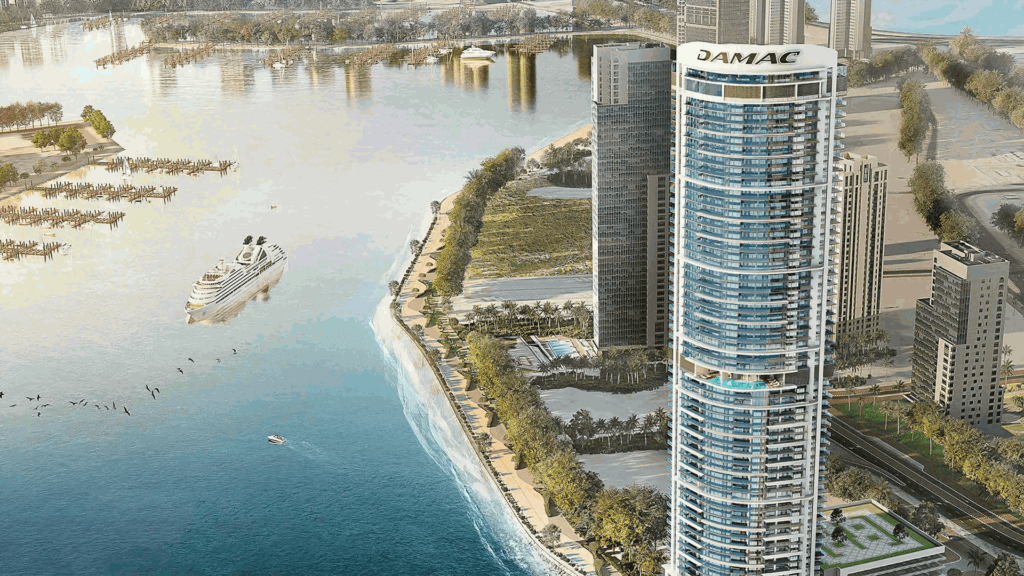
Indonesia: If your goal is high returns and affordable prices, Indonesia offers excellent opportunities, especially in the tourist areas. However, it is worth considering the more challenging legal aspects and taxation.
Ultimately, the choice between the UAE and Indonesia depends on your finances, goals and preferences. The UAE offers stability and high standards of living, while Indonesia attracts with its affordability and growth prospects. Regardless of your choice, each of these countries offers unique opportunities for successful real estate investments.
Key factors include standard of living, rental yields, taxes, infrastructure and residency opportunities.
The minimum investment in the UAE is around €200,000, which allows you to purchase a small apartment or commercial space.
In Indonesia, property purchase tax is around 5% and rental income is taxed at 10%.
Rental yields in the UAE can be as high as 8-10% per annum, especially in popular areas of Dubai and Abu Dhabi.
Indonesia offers affordable real estate prices, high rental yields and a growing tourist flow.
Yes, you can get residency in the UAE through investment, provided you invest €500,000 or more.
The cost of living in the UAE is higher than in Indonesia due to higher rental and service prices.
In Indonesia, the prospects for real estate value growth are high due to infrastructure development and increased tourist traffic.
Developed infrastructure in the UAE positively affects the cost of real estate, especially in areas with good transport accessibility.
Foreigners in Indonesia can purchase real estate under certain conditions, such as long-term leases or through local companies.
What are the main factors that influence the choice of a country to buy real estate?
Key factors include standard of living, rental yields, taxes, infrastructure and residency opportunities.
What is the minimum amount of real estate investment in the UAE?
The minimum investment in the UAE is around €200,000, which allows you to purchase a small apartment or commercial space.
What taxes do investors in Indonesia expect to pay?
In Indonesia, property purchase tax is around 5% and rental income is taxed at 10%.
What level of returns can I expect from renting in the UAE?
Rental yields in the UAE can be as high as 8-10% per annum, especially in popular areas of Dubai and Abu Dhabi.
What advantages does Indonesia offer for real estate investors?
Indonesia offers affordable real estate prices, high rental yields and a growing tourist flow.
Can I get residency in UAE through real estate investment?
Yes, you can get residency in the UAE through investment, provided you invest €500,000 or more.
How does the cost of living in the UAE compare to Indonesia?
The cost of living in the UAE is higher than in Indonesia due to higher rental and service prices.
What is the outlook for real estate value growth in Indonesia?
In Indonesia, the prospects for real estate value growth are high due to infrastructure development and increased tourist traffic.
How does the UAE's advanced infrastructure affect the value of real estate?
Developed infrastructure in the UAE positively affects the cost of real estate, especially in areas with good transport accessibility.
What are the restrictions for foreign buyers in Indonesia?
Foreigners in Indonesia can purchase real estate under certain conditions, such as long-term leases or through local companies.
